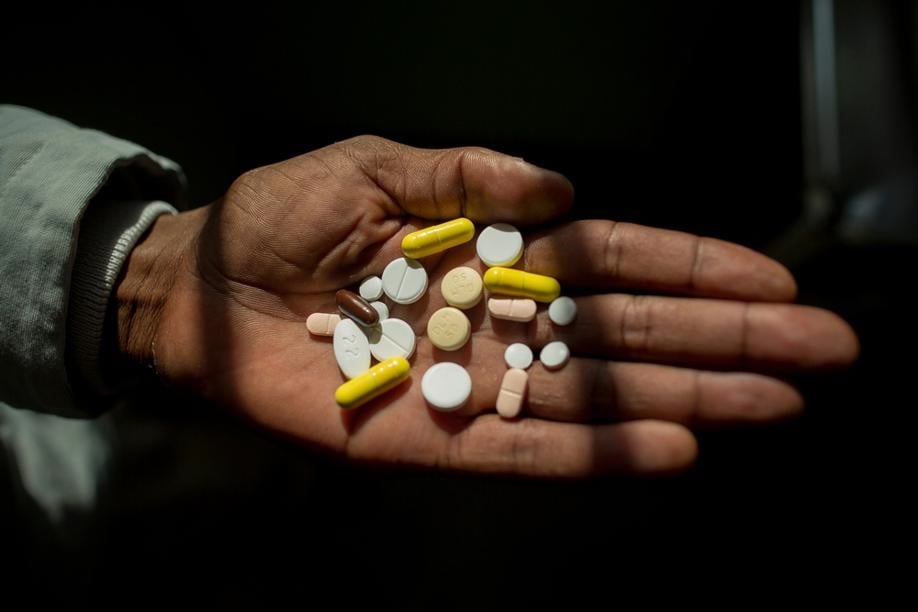
- SA faces a gap between its policy and implementation of TB treatment and prevention, a report has found.
- The country spends around R4 billion a year on its TB programme.
- Less than 60% of all TB cases are diagnosed in South Africa.
South Africa spends more than R4 billion to treat TB, but nearly half of those who contract the disease remain undiagnosed.
Now, health advocacy groups say the best way to prevent more TB deaths is by revising South Africa's treatment strategy and policy.
The TB Accountability Consortium's State of TB report found a gap between South Africa's policy around treating and preventing TB and implementing it at healthcare facilities.
According to statistics by the World Health Organisation (WHO), in 2021, a total of 54 000 people died of TB in South Africa. The WHO estimated that, in 2021, around 304 000 people fell ill with TB. However, only around 172 000 people were diagnosed (57%). Of those that started treatment, only 78% completed their treatment.
South Africa is one of the 30 countries with the highest TB burden.
For the last two decades, South Africa's TB response has been guided by a National Strategic Plan (NSP) for HIV, TB and STIs, which is updated every five years.
The new NSP for 2023-2028 is to be released by Deputy President Paul Mashatile, in his capacity as the chairperson of the South African National AIDS Council, on Friday.
In addition to this plan, the national health department introduced a TB Recovery Plan to help the country catch up on the lowered testing and treatment rates resulting from Covid-19, said Sihle Mahonga, TB Accountability Consortium Project Officer.
He added:
This year's edition of the State of TB Report focuses on the governance of TB programmes and what is needed to bring about coherence in implementing TB programmes.
The report shows "gaps" in the government's TB response, especially in implementing its policies.
The report also found a lack of transparency around the NSP and TB Recovery Plan, a disconnect between national and provincial health departments, and a lack of consistent community involvement in the TB response.
READ | The once proud Rahima Moosa hospital - now filthy and unsafe - needs a new CEO fast, ombud says
"Collectively, these issues all compromise the management of the TB response. And the end result is that the policy framework is not met with effective implementation, adequate support and strong oversight, so that there is accountability in the TB cascade holistically," said Mahonga.
Implementation falling short
On the ground, the problems in implementing national policy are clearly seen.
TB Proof Advocacy consultant and University of the Western Cape Public Health Associate Professor, Renier Coetzee, said research had found that community healthcare workers – considered the frontline in implementing policy such as the TB Recovery Plan – were unaware of its contents.
"There are huge gaps, and there is much work that needs to be done," said Coetzee.
At healthcare facilities, the policy implementation was inconsistent, said the Treatment Action Campaign's (TAC) Ngqabutho Nceku Mpofu.
Data collected by the TAC showed that, at surveyed healthcare facilities, only around 55% of patients were being asked whether they had TB symptoms – something he described as "absolutely ridiculous".
In addition, only 40% of those surveyed said they had been offered TB preventative treatment in the last year.
Medicine shortages
Mpofu said another challenge noted by the TAC was medicine stock-outs at various facilities.
But even if the policy was implemented successfully, it might not eradicate the disease.
The Health Economic and Epidemiology Research Office's Professor Gesine Meyer-Rath said an investment case was drawn up to establish the best way to optimise South Africa's TB budget - and it showed that the current NSP would likely produce results far below the WHO targets.
READ | SA's healthcare sector faces collapse if govt fails to implement NHI, warns WHO expert
In 2019/2020, the country spent more than R4 billion on the prevention and treatment of TB, of which two-thirds were publicly funded. Around 60% of the funding was spent on treatment, and 18% was spent on screening.
The WHO has issued a target of an 80% reduction in the incidence of TB and a 90% reduction in mortality. Based on modelling, the NSP would cost South Africans around R4.5 billion, leading to a 12% reduction in incidences and a 25% reduction in mortality.
Meyer-Rath said two other models were run and, in the best scenario, South Africa could achieve a 22% reduction in incidents and 40% reduction in mortalities. These models would cost between R8 billion and R12 billion to implement, with screening levels having to double.
She said the models still fell short of the WHO targets and indicated that South Africa "will probably never reach the WHO coverage target, unless we have a new intervention".
While it may seem impossible, advocacy groups insist that South Africa's incidences of TB must be reduced – starting with the implementation of the NSP.
The executive director of the Rural Health Advocacy Project, Russell Rensburg, said: "We have a very tough five years ahead of us. But we can't, as a country, continue to allow people to die of a disease that is curable and preventable."




 Publications
Publications
 Partners
Partners























